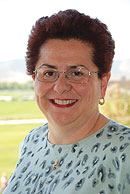Eye on Extension: Enjoy a safe grilling season

VALLEY — Summer means long days enjoying the outdoors. This includes family and friends getting together for a meal cooked on the grill.
According to the Center for Disease Control and Prevention (CDC), food borne illness claimed 48 million gastrointestinal illnesses, 128,000 hospitalizations, and 3,000 deaths last year. If a pregnant woman, elderly person or young children are the guests at your cook out, food safety is especially important. During grilling it is still important to have safe cleaning, prepping and cooking methods.
First, be prepared to clean. Wash the grill down with hot soapy water before you start grilling. Always wash your hands before, during and after food preparation. Clean handling and food prep will help eliminate the spread of illness causing bacteria.
Second, be sure to separate. As always, use separate cutting boards and utensils for raw meats and vegetables. In addition, separate the raw meats from ready to eat foods and vegetables when cooking. Marinade is only safe to re-use if it is boiled first.
Third, remember to check temperatures. To ensure bacteria are adequately killed through the cooking process, use a food thermometer to check internal temperature of foods. Just cutting it open and looking at it or feeling the surface of the food is not a safe way to make sure food is cooked properly. Below is a list of foods and the minimum internal temperatures they should be before consuming them.
* Poultry 165 degrees Fahrenheit
* Ground Turkey and Chicken 165 degrees F.
* Ground Beef, Pork & Lamb 165 degrees F.
* Steak 145 degrees F.
* Pork 145 degrees F.
* Fish 145 degrees F.
* Vegetables & Fruit Grill until tender and slightly browned
For more information contact Mary Ellen Fleming at 852-7381, or visit the CSU Extension Office for the San Luis Valley Area at 1899 E. Hwy 160 in Monte Vista. Please feel free to visit our website at: http://sanluisvalley.colostate.edu for information about services provided.
Extension programs are available to all without discrimination, Colorado State University Extension, U.S. Department of Agriculture and Colorado Counties cooperating.



